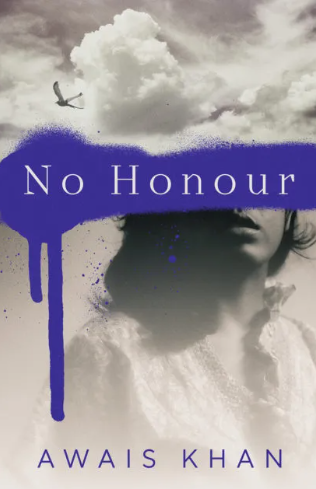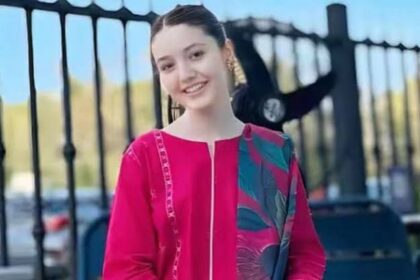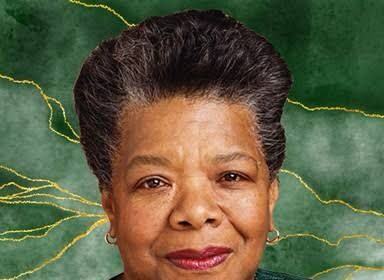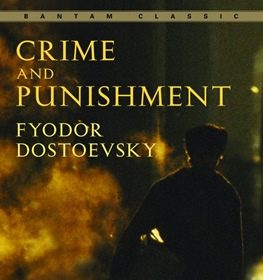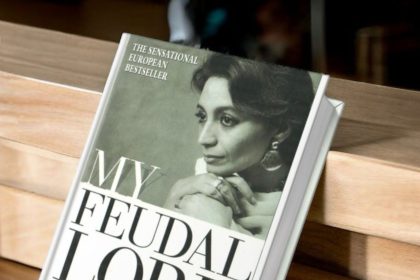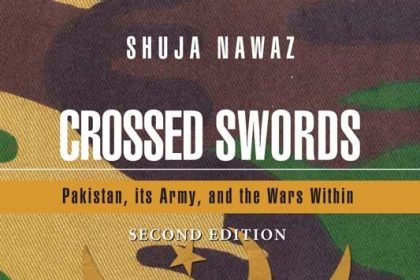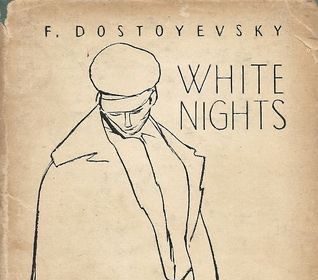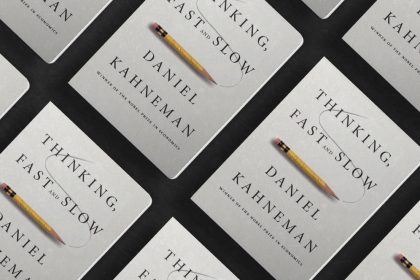I was introduced to Awais Khan through Asif Nawaz’s (author of The Pilgrims) social media recommendation. I reached out to Awais on Instagram and asked him to recommend his personal best. He suggested No Honour—and I’m grateful he did.
I’m breaking a norm I’ve set for my book reviews: not introducing the writer. First, I only write about books that compel me to. Second, I want my readers to experience the book first—be shaken by it—and then seek out the author, hungry for more. That, to me, is a writer’s real achievement. I remember doing the same with Umaira Ahmad and Judith McNaught in my teens. More recently, I devoured Khaled Hosseini’s works the same way.
One reason I was excited about No Honour was that it’s written by a Pakistani author. I’ve been intentionally reading more Pakistani voices lately—and it’s been immensely rewarding. Reading authors from your own country adds a layer of relatability that’s hard to find elsewhere. The language, culture, customs, societal norms, and values—everything hits closer to home. Even seeing familiar names in the bestseller sections sparks a quiet pride.
As the title suggests, the book deals with an oft-repeated yet cruelly underrated subject: honour killings in Pakistan. I’m not sure why the universe keeps sending me books that deal with such chilling atrocities against women—but No Honourstruck a particularly raw nerve.
The first half didn’t quite grip me—except for one harrowing scene that still haunts me. The writing style is basic, not particularly lyrical or fancy, which initially disappointed me. But the second half was not easy to put down. I stayed in a state of disbelief throughout.
We hear of drug mafias, corruption, brothels, human trafficking, and male violence—yet we remain desensitised. These are always someone else’s stories. Until they aren’t. Until they happen to someone you love.
There were moments I wanted to ask Awais: How could you write such horror? From where do these terrifying truths emerge? I shudder to imagine that these aren’t just fiction—they’ve happened to real women, real girls.
I felt breathless with every page. From an unloving mother to public shame, betrayal by a lover, forced prostitution, marriage to a drug lord, and unspeakable abuse—how much can one body, one spirit endure? And all this was experienced by a 15-year-old girl.
Awais doesn’t just depict the slow, cruel killing of a Pakistani woman—he also sheds light on another epidemic: drug abuse in Pakistan. I heard an ASP speak recently who said, “It’s no longer about whether drugs are bad or not—it’s about which ones to use and which to avoid.” That’s how normalised the crisis has become.
After finishing the book, I found myself researching drug mafias in Pakistan—and what I discovered was bleak. Alarming. Urgent.
As I often emphasise in my reviews, this is why our children must read books. Fiction gives you the wisdom life often fails to offer in time. It opens your eyes before it’s too late.
What struck me most deeply in No Honour was the bond between a father and his daughter. It made me pause and reflect: how many of us truly have someone in our lives—especially a parent—who would never give up on us, the way Abida’s father and Shahid stood by her? How many fathers would go to such unimaginable lengths to rescue their daughters from the pits of darkness?
You must read No Honour to understand and appreciate Jamil—the father who rightfully earns the sentiment:
“Mera baap kam na tha meri maa se.”
There’s an Urdu poem that captures the essence of Jamil’s character—the sacrifices, the silent endurance, and the unwavering love. But its true meaning can only be felt after witnessing Jamil’s struggle:
Main baap hoon, maine khwaab bechay
To khwaab sab ke khareed laaya.
Main woh hoon jis ne azaab jheelay,
To aap logon ne chain paaya.
Mujhe jo badlay mein mil raha hai—
Sila, yeh kya hai? In’aam kya hai?
Mera batao, maqaam kya hai?
Kabhi suno mujh se, laadlo tum,
Mera fasana, meri kahani.
Kabhi toh pucho kahan gayi hai
Meri woh rangon bhari jawani?
To yaad rakhna—tumhari khatir,
Tumhare bachpan pe waar di hai.
Tumhein main pehle jawaan kar loon,
Yeh karte karte guzaar di hai.
Guzar gayi hai toh sochta hoon—
Guzar gayi jo shaam, kya hai?
Mera batao, maqaam kya hai?
Translation:
I am a father—I sold my dreams,
So I could buy yours, completing your schemes.
I bore the trials, the sleepless nights,
So you could rest in softer lights.
And what I’ve earned in this exchange—
A prize? A place? A token change?
Tell me now—what’s my reward?
What title fits this battle-scarred?
Oh children dear, just once, come near,
And hear the tale I’ve held so dear.
Ask me where my colours went.
My youth, my fire, my soul’s lament.
Remember this—your joy, your youth,
I shielded both—I speak the truth.
In raising you, I let time pass—
And now I ask, when dusk is cast:
What is left of me, at last?
What is my worth when all is past?
And then there’s Shahid—a man who chooses to love a woman twice married, a mother, a victim of forced prostitution. He doesn’t just love her—he rescues her, marries her, and most importantly, honours her for the rest of his life. I find Shahid’s love even more extraordinary than that of her father. Because while Jamil was bound by blood, Shahid was bound by love—and love alone.
To conclude, I give Awais Khan the credit he rightfully deserves—for crafting a story that is not just painful but powerfully cathartic. No Honour forces us to confront the harshest realities we’re too afraid to name. And for that, we must thank him.




